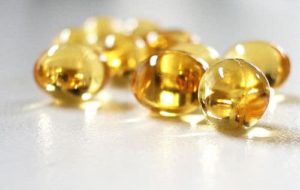Vitamins and certain *Neutraceuticals* definitely have a role in maintaining our health and well being. I will attempt to post useful information for my readers as I find it.
Vitamin D
- Vitamin D … A video of Michael Holick, renowned researcher.
- Vitamin D .. The FactsA well written, long discussion about Vitamin D and its potential benefitis
- NPR Article about Vitamin D
- Vitamin D Information
- NY TImes Vit D article 2010Vitamin D
- WSJ : Panel Recommends We Triple Our Vitamin D IntakeVitamin D has a role in soooo many systems in our body… including the cartilage in your knee. Taking Calcium ?? Well, without adequate vitamin D intake you’re probably not accomplishing much.
- A Question and Answer hosted by The Cleveland Clinic
- Vitamin D may diminish risks of heart attacks in Men: Article from Reuters.
Quercetin
A potential anti inflammatory and anti-oxidant
- Quercetin… A blog post about research into potential benefits of Quercetin
- Quercetin … An Informed Medical OpinionAn informed medical opinion on Wikipedia…
Vitamin D is a very important vitamin and by all means you should know what your vitamin D level is. Consult with your physician to determine what your level is and if supplementation is necessary. The information I present in this section is NOT meant to be taken as medical advice. Feel free to print out the information to review it with your physician.
Co-Enzyme Q10
Coenzyme Q10 is a substance made naturally by your body. Co Q10 has received a lot of attention lately because some early reports show that Co-Q10 MAY diminish some of the muscle aches and pains associated with Statin use (Lipitor, Crestor, Simvastatin, etc).
As a supplement, it’s usually sold as a capsule and is marketed under brand names such as Co-Q10, Coenzyme Q10, LiQsorb, Liquid Co-Q10 and Q-Gel.
Some researchers think that taking a coenzyme Q10 supplement may reduce the risk of serious muscle damage (rhabdomyolysis). And some small reports suggest that troubling side effects — muscle and joint aches — from statins might be reduced if you take coenzyme Q10 along with a statin. However, no large studies have confirmed this theory, so current guidelines don’t recommend routine use of coenzyme Q10 in people taking statins.
Pre- and Post Operative Nutritional Considerations:
A guest post from John La Puma, MD… Thanks John
Last year, my Mom had her first operation: a total knee replacement.
Active and curious, and having recently celebrated her 29th birthday again, her mother was turning 100 shortly and needed assistance. Mom wasn’t able to get around well enough to help, with her osteoarthritis and pain.
A month before the operation she asked me, “What can I eat to heal and recover from the surgery?”
It turns out that there’s a good answer to this. It can be divided into wound healing, building bone, rebuilding muscle and guarding against weight gain.
A blog is too short to cover each category in depth, but fortunately, there is a largely untapped literature about nutrition and post-operative care.
The key: wounds heal from the inside out. Many patients need additional arginine and vitamin C, just to name two nutrients, pre-operatively and post operatively. Lowering oxidative stress improves healing. The peri-operative period is the most critical.
Building bone is a function of vitamin D, calcium and magnesium, and the right hormones. Smoking prevents bone from being built. And food can facilitate it.
Rebuilding muscle is something that has nutrition, and dietary protein, at the center. I often encourage my patients to have a little protein-rich food at every meal, especially breakfast. Omega-3 fatty acids, especially DHA (almost solely from fish and from algae, which is where fish get their DHA) improve muscle building post-op. My Mom took them.
Recent data have shown that total knee patients gain an average of 14 pounds post-op, and it’s not all muscle. Gaining that much weight post-op delays recovery and increases instability.
Post-op patients need satisfying, lower calorie recipes written on prescription slips: high calorie, high sugar foods that are highly processed should never appear, and would never be reimbursed. But strategic nutrition can improve strength, healing, flexibility and stamina. And should.
Although my grandmother passed away just after reaching 100, my Mom has recently returned from Hawaii, Carmel, New York City and points unknown, without a cane or a pain pill, nearly as good as new. In fact, better.
(c) John La Puma, MD
@johnlapuma
http://drjohnlapuma.com








